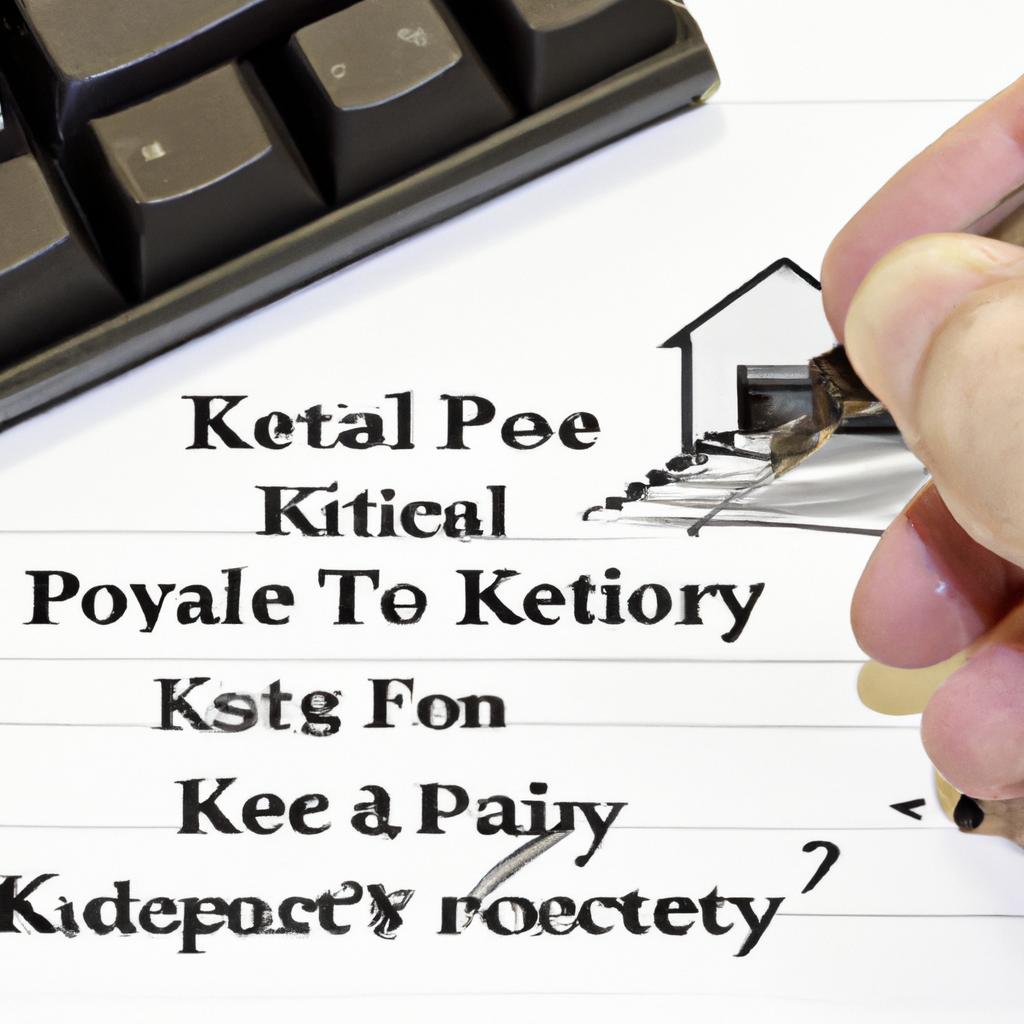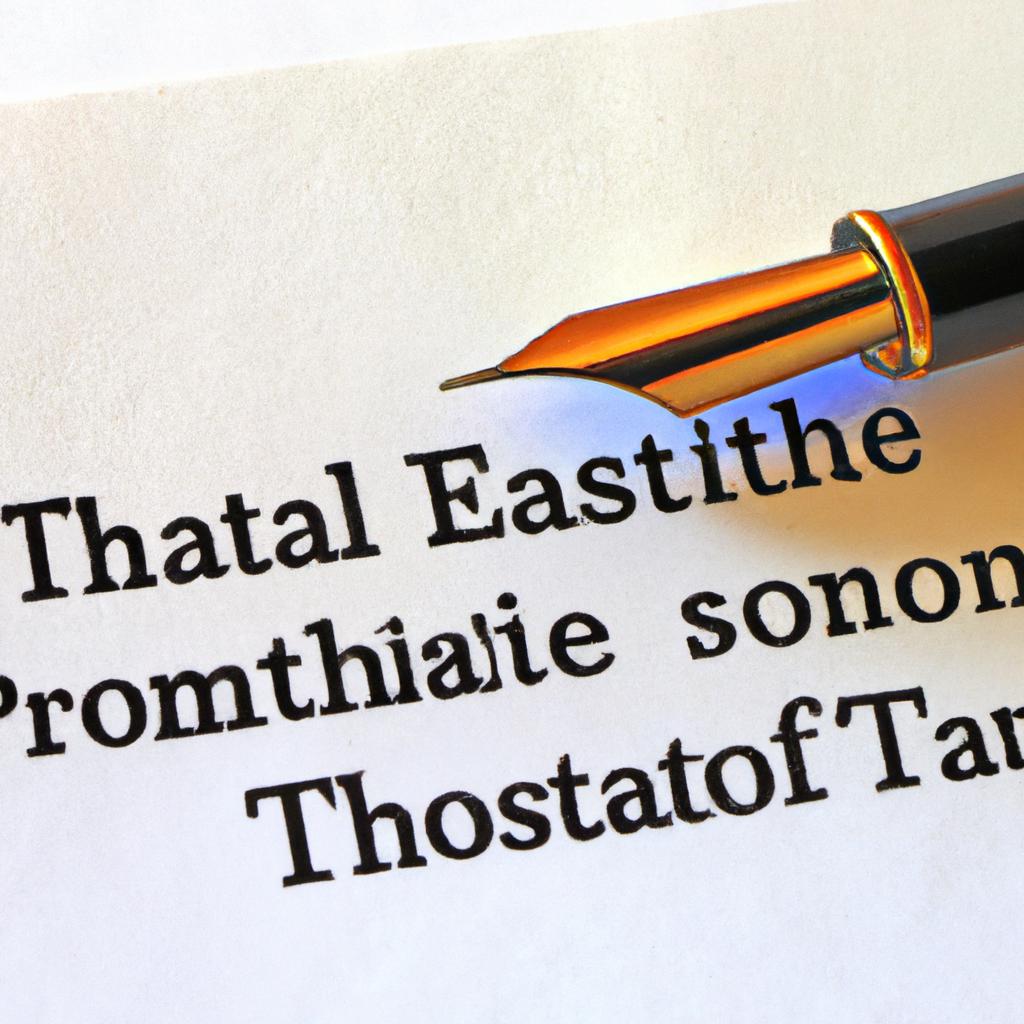In the intricate world of estate administration, real estate probate lawyer”>real estate probate stands as a vital component in navigating the complexities of property transfer following the passing of a loved one. As seasoned legal practitioners at Morgan Legal Group in the vibrant heart of New York City, we specialize in the delicate art of estate planning, probate, elder law, Wills, and trusts. Join us as we delve into the realm of real estate probate, shedding light on the nuances of this essential process.
Understanding Real Estate Probate Process
Real estate probate refers to the legal process of transferring ownership of real property from a deceased individual to their heirs or beneficiaries. This process typically occurs when the deceased person did not leave a will outlining how their property should be distributed. Real estate probate can be a complex and time-consuming process that requires the guidance of a knowledgeable attorney.
During the real estate probate process, the court will oversee the distribution of the deceased person’s property according to the laws of the state where the property is located. This process involves several steps, including identifying and appraising the assets, paying off any debts and taxes owed by the deceased person, and distributing the remaining property to the rightful heirs or beneficiaries. It is important to have a skilled attorney to assist with the real estate probate process to ensure that all legal requirements are met and that the property is transferred smoothly and efficiently.

Key Steps Involved in Real Estate Probate
In real estate probate, there are several key steps that need to be followed to ensure a smooth and legally sound process. One of the first steps is to determine whether the property is a part of the deceased person’s estate. This involves gathering all relevant documents, such as the will, property deeds, and any other legal documentation.
Once it has been established that the property is part of the estate, the next step is to appraise the property to determine its value. This is important for tax purposes and for the distribution of assets among the beneficiaries. After the appraisal, the property will need to be inventoried along with all other assets of the estate. This inventory will then need to be filed with the probate court as part of the overall probate process.

Navigating Real Estate Probate: Tips and Best Practices
When someone passes away, their assets, including real estate, are often subject to a legal process known as probate. Real estate probate involves the court overseeing the distribution of the deceased person’s property according to their will or state laws. Navigating real estate probate can be a complex and time-consuming process, but with the right tips and best practices, you can ensure a smooth and successful outcome.
**Tips for navigating real estate probate:**
- Consult with an experienced probate attorney to guide you through the process.
- Gather all necessary documents, including the deceased person’s will, deeds, and financial records.
- Communicate openly and effectively with all parties involved, including heirs, beneficiaries, and creditors.
Best practices for handling real estate probate:
- Stay organized and keep detailed records of all transactions and communications.
- Follow the court’s instructions and deadlines carefully to avoid any delays or complications.
- Consider hiring a real estate appraiser to determine the value of the property accurately.
Contact Us: Morgan Legal Group Location: New York City 
Ensuring a Smooth Real Estate Probate Transition
Real estate probate is the legal process that takes place after a property owner passes away. It involves determining the validity of the deceased individual’s will, identifying and itemizing their assets, paying off any outstanding debts or taxes, and distributing the remaining assets to the rightful heirs. This process can be complex and time-consuming, requiring the expertise of a knowledgeable probate attorney to navigate smoothly.
At Morgan Legal Group, we specialize in for our clients. Our team of experienced probate attorneys is dedicated to guiding you through every step of the probate process, from filing the necessary documents with the court to resolving any disputes that may arise among heirs. We understand the intricacies of real estate probate and are committed to helping you protect your assets and secure your loved ones’ financial futures. Let us take the stress out of probate so you can focus on honoring your loved one’s memory.
Q&A
Q: What is real estate probate?
A: Real estate probate is the legal process that takes place after someone dies and their property needs to be transferred to their heirs or beneficiaries.Q: How does the probate process work for real estate?
A: In a probate process, the court oversees the distribution of the deceased person’s assets, including real estate. The court will typically identify and inventory all of the decedent’s property, pay off any outstanding debts, and distribute the remaining assets according to the terms of the will or state law.Q: What are the potential challenges of real estate probate?
A: One challenge of real estate probate is that it can be a lengthy and costly process. There can also be disputes among heirs or beneficiaries over the distribution of the property. Additionally, there may be claims against the estate by creditors that need to be resolved.Q: How can someone avoid real estate probate?
A: One way to avoid real estate probate is to create a living trust, which allows you to transfer ownership of your property to a trust during your lifetime. This can help to avoid the probate process and allow for a smoother transfer of assets to your beneficiaries after your death.Q: Are there any tax implications of real estate probate?
A: Yes, there can be tax implications of real estate probate, including estate taxes and capital gains taxes. It’s important to consult with a tax professional or estate planning attorney to understand the tax implications of transferring property through probate.Wrapping Up
In conclusion, real estate probate is a legal process that can often be complex and confusing. It is important to understand the implications and requirements involved when dealing with real estate that is part of a probate estate. By navigating this process with care and attention to detail, you can ensure a smooth transition of ownership and protect your interests in the property. If you find yourself in need of assistance with real estate probate, be sure to seek out the guidance of a knowledgeable professional to help guide you through the process. Understanding what is real estate probate can help you navigate this aspect of estate planning with confidence.
 What is Real Estate Probate and Why Does It Matter?
What is Real Estate Probate and Why Does It Matter? Real estate probate is a term that is often thrown around in the world of real estate, but many people are not entirely sure what it means or why it matters. In simple terms, probate is the legal process of administering a deceased individual’s assets and ensuring that their debts and taxes are paid. When it comes specifically to real estate, probate involves the transfer of a deceased person’s property to their beneficiaries or heirs. In this article, we will delve deeper into the details of real estate probate, its importance, and how it works.
The Probate Process: An Overview
The probate process can vary slightly depending on the state in which the deceased person lived, but generally, it follows a similar structure. Here is an overview of the probate process:
- The petition – The first step in probate is for the executor of the deceased person’s will (or an appointed representative if there is no will) to file a petition with the probate court. This petition typically includes information about the deceased person’s assets, debts, and heirs.
- Notification – Once the petition is filed, the probate court will issue a notice of the probate filing to all of the deceased person’s known creditors, beneficiaries, and heirs.
- Inventory and appraisal – The executor or representative must take an inventory of the deceased person’s assets and have them appraised to determine their market value. This step is essential in determining the estate’s overall value and any potential tax implications.
- Payment of debts and taxes – Before any property can be transferred to beneficiaries, the executor or representative must pay off any debts and taxes owed by the deceased.
- Distribution of property – Once all debts and taxes are settled, the remaining property can be distributed to the beneficiaries or heirs as outlined in the deceased person’s will. If there is no will, state law will determine the distribution.
Importance of Real Estate Probate
Now that we understand the probate process, let’s delve into why it matters, specifically in relation to real estate.
- Protects the rights of creditors – Probate ensures that any outstanding debts of the deceased person are paid before their property is distributed to beneficiaries. This protects the rights of creditors and prevents beneficiaries from inheriting any debt.
- Prevents fraud or disputes – Probate also helps prevent fraudulent claims on the deceased person’s property and resolves any disputes between beneficiaries or heirs. It provides a legal and organized way to transfer property and eliminates the possibility of someone unlawfully taking it.
- Proper transfer of title – One of the most critical aspects of probate is the transfer of title for real estate. This process ensures that the property’s legal ownership is transferred to the designated beneficiary or heir. Without probate, there may be confusion or disputes over who has the legal right to the property.
- Tax implications – Real estate probate is also crucial in determining any tax implications for the beneficiaries. The property’s value as appraised during the probate process can affect potential estate and inheritance taxes.
The Role of a Probate Attorney
Navigating the probate process can be complex and overwhelming, especially when it comes to real estate. It involves legal documents, court filings, and potential tax implications, which is why many people choose to work with a probate attorney.
A probate attorney specializes in guiding individuals through the probate process and ensuring that everything is handled correctly. They can assist with filing the initial petition, notifying creditors and heirs, and handling any legal issues that may arise during the process. Additionally, they can provide valuable guidance on tax implications and help expedite the probate process.
Practical Tips for Navigating Real Estate Probate
There are a few practical tips to keep in mind if you find yourself dealing with real estate probate for a loved one’s estate:
- Understand your state’s probate laws – Each state has its own laws and regulations surrounding probate, so it’s essential to familiarize yourself with them to ensure a smooth process.
- Keep thorough records – Keep accurate records of all assets, debts, and expenses related to the estate. This can help prevent disputes or confusion later on.
- Communicate with beneficiaries – It’s crucial to keep beneficiaries informed throughout the probate process to avoid any conflicts or misunderstandings.
- Seek professional guidance – As mentioned, working with a probate attorney can make the process much more manageable and ensure everything is done correctly.
Case Study: Jane’s Experience with Real Estate Probate
Jane’s grandmother recently passed away and left behind a large estate, including multiple properties. Jane was the executor of her grandmother’s will and had very little knowledge of the probate process. She decided to seek help from a probate attorney, who guided her through each step and made sure everything was handled correctly. Without the probate process and the guidance of the attorney, Jane may have encountered issues with transferring the properties’ title and settling her grandmother’s debts, ultimately delaying the distribution of the assets to the beneficiaries.
In Conclusion
Real estate probate is a crucial aspect of the probate process that ensures the proper transfer of property and protects the rights of creditors, beneficiaries, and heirs. It may seem daunting at first, but with the right guidance and resources, it can be navigated smoothly and efficiently. If you find yourself dealing with real estate probate, remember to seek professional guidance, keep thorough records, and communicate with beneficiaries for a successful outcome.






